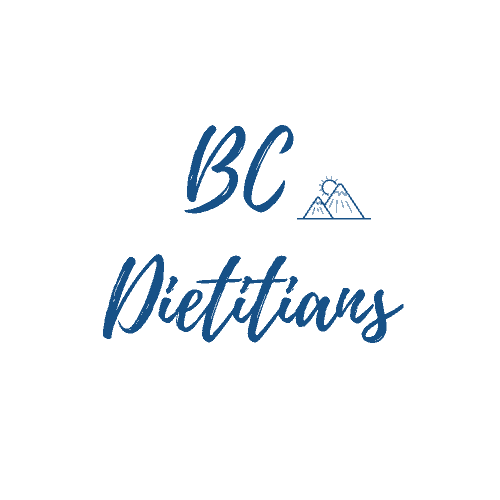Weight gain has became inevitable for many of us with staying home during the pandemic lockdown and social distancing. The major disruption in daily routine and healthy habits combined with the stress of an uncertain future – the unfortunate reality of job losses, businesses closing down, economic instability, it is no surprise that the number on the scale and our waistline are changing too!
Quarantine 15 – a play on the words “Freshman 15” of the significant weight gain over a relatively short time. Undeniably, there has been an increase in weight gain from being around food all the time, baking and eating more comfort foods to cope with boredom and stress, drinking extra calories and dwindling physical activity levels with gym closures and social distancing rules.
As we are returning back to a new normal with the beach weather right around the corner (hopefully!), you might be wondering about how to lose the Quarantine 15 fast before the Summer disappears. This typically leads people into restricting and starting their next diet, jumping back into a dieting cycle that really does more damage than good. If you have try one of those fad diets before, (keto, intermittent fasting, juice cleanse, etc.) you might be far too familiar with the side effect of the viscous diet cycle which often leads to gaining even more weight by the end than when you have first started.
The ENDLESS Viscous Diet Cycle
Our body responds to dieting by acting as if it would during starvation. Thanks to survival mechanisms and metabolic adaption, our body begins slowing down metabolism, and starts conserving energy and stores fat under stress. Dieting is a stressor for the body and mind.
Have you ever noticed whenever you go on a diet, you suddenly notice all these yummy food around you and you are constantly thinking about food – perhaps battling whether or not you should eat and/or how much you ‘should’ eat?
This preoccupation with food was also well documented in a classic semi-starvation study known as the “Minnesota Starvation Experiment” that was designed to determine the physiological and psychological effects of severe and prolonged dietary restriction and the effectiveness of dietary rehabilitation strategies. Some of the participants ate about half of their usual intake ~1500kcal (which is a pretty typical starting point for people who are on a diet nowadays), some eventually developed a serious problem with binge eating and obsessive thoughts about food and eating.
Most of the men experienced periods of severe emotional distress and depression along with decreased sexual interest, social withdrawal and isolation. The men reported a decline in concentration, comprehension and judgment capabilities, and had reduced body temperature, respiration and heart rate – indications of their bodies working hard to conserve energy and fat.
So Now What? Your Next Steps…
“Restricting and dieting back to your usual weight isn’t the answer” – Rachel McBryan, RD.
1. First of all, these have been stressful times, and this must be acknowledged.
Food is comforting in the midst of uncertain times – although not an ideal coping mechanism, has undeniably helped us through this challenging times. Our world as we know it has changed and with time, you can learn other coping skills to deal with your emotions without leaning on food and eating.
2. Rachel shares that the way forward is not to go backward, guilt and shame only bring you back into negative self-talk and in turn, self-sabotaging actions.
Know that you are enough despite what the number on the scale says (better yet, throw that scale in the garbage where it belongs!). Instead of jumping back in the endless unproductive dieting cycle, you can learn to develop a lifelong healthy relationship with food. Imagine if you can eat for pleasure, mindfully, and truly enjoy eating while nourishing your body to feel your best. When you don’t have to calculate your eating or obsess about what you should be eating, you can move on to do other fulfilling things in life.
3. Start with the right mindset – Adrienne Ngai, RD shares that the self-sabotaging mindset keeps a close, obsessive monitoring of weight and diet. You can’t trust yourself and the process of losing weight. Instead, you over analyze and feel the need to overly limit and restrict foods in order to get results. You feel tired and are scared to eat anything (ie. carbs/sugars) because you don’t want to “lose” the weight loss you’ve made. Does this sound familiar?
“The right mindset [is key] to successfully achieve and sustain weight loss. Trusting that fluctuations are normal, that you are consistently following your plan, and focusing on wins that are not solely number focused make weight loss easier and more enjoyable. Being able to listen to your body’s cues for hunger, fullness, and stress allows you to be connected for lasting weight loss results.” – Adrienne


4. Just get started – Michelle Shepherd, RD at Westcoast Nutrition and Angela Hubbard, RD at Positively Nourishing Nutrition Consulting, suggest the following steps to get back on track and get started with a plan:
- First and foremost, you need to get clear on your goals – Why do you want to change your eating? Why do you want to lose weight?
- We need to sit down and write out what ‘healthy eating’ is to you. Describe how eating makes you feel, how food should fit into your life, what foods you consider to be healthy, what your thoughts are about diets your friends are following (positive and negative … let it all out)
- Then, think about how you are eating now – how closely does your eating match this idea of healthy eating you have?
- Make a list of key habits, tasks, or actions that you know help you feel better, eat better, or mentally be more “in the game”
- What is the ONE thing you can start with this week?
5. Recruit help and build up your support system – support and accountability are your best tools to success.
Life happens and your diet is going to be far from perfect, it’s important to move forward with your goals in mind rather than beating yourself up. Losing weight should never be a DIY project. There are no better support than a knowledgeable dietitian who has invaluable expertise and insights into how you can achieve your goals.
Consider reaching out to one these local dietitians nutritionists offering services in weight management:
Rachel McBryan, RD – Nutritional Counselling Services
A comprehensive 1, 3 or 6 months program with Rachel that includes:
- Rachel’s signature ‘Lifestyle Approaches to a Healthy Weight’ classes,
- One on one dietitian consultations every 3 weeks and meal planning,
- Live weekly Craving Change discussion groups,
- Prevention of Chronic Disease webinars,
- Wise Eats = Healthy Weight members only Facebook group
Angela Hubbard – Nourish Your Weight Group Program
A 3 months group program with Angela that includes:
- 3 months of access to all the online program resources,
- Weekly video calls to discuss the week’s topic and ask Angela your questions, face-to-face, so you won’t get stuck as you start using the strategies and tools,
- Videos, worksheets, check-in activities, templates and handouts so you can not only learn the topic but put the information into a plan that you’ll take action with,
- A safe, private online community that is only open to members of the program
Michelle Shepherd at Westcoast Nutrition
Choose between 3 support levels with individual consultations with Michelle:
- Get me started – an initial 75-minute consultation with Michelle + 2x bi-weekly follow up sessions
- Lifestyle Kickstart (3 months program) – an initial 75-minute consultation with Michelle + 5x bi-weekly follow up sessions
- Lifestyle Makeover (5 months program) – 7x One on One Sessions + 1 Week Personalized Meal Plan + 14 Weekly Accountability Email Check Ins
Kristen Yarker – One-on-One Dietitian Service Package
A 6 months program with Kristen that includes:
- 12 one to one consultations with Kristen,
- Daily support via text messages and/or email for the first month to get you through the toughest part
If you are ready to gain control of what you eat while still enjoying the food you eat, invest in yourself and contact your local Registered Dietitian Nutritionist today. Dietitians across BC are here to support you in your goals. Whether it be sustainable weight loss or developing a healthy relationship with food, we are here for you!
Blog Contributors:
- Rachel McBryan, RD – Guest Blogger. https://rachelmcbryanrd.com/
- Rachel McBryan, RD – Wise Eat Nutritional Counselling Services. Accessed July 16th 2024. Available from: https://wiseeats.ca/wise-eats-nutritional-counselling/
- Westcoast Nutrition – 4 Steps to get Back on Track. Accessed July 6th 2020. Available from : https://westcoastnutrition.ca/how-to-get-back-on-track-if-eating-has-been-bumpy/
- Westcoast Nutrition. Accessed July 6th 2020. Available from : https://westcoastnutrition.ca/
- Positively Nourishing Nutrition Consulting. Weight Loss for Heart Health. Accessed July 6th 2020. Available from https://www.feedyourhealth.ca/
- Positively Nourishing Nutrition Consulting. Nourish Your Weight Group. Accessed July 6th 2020. Available from: https://www.feedyourhealth.ca/
- Adrienne Ngai, RD. Instagram @Adrienne.RD. Accessed July 6th 2020.
- American Psychological Association.The Psychology of Hunger. Accessed July 6th 2020. Available from: https://www.apa.org/monitor/2013/10/hunger








Add a comment